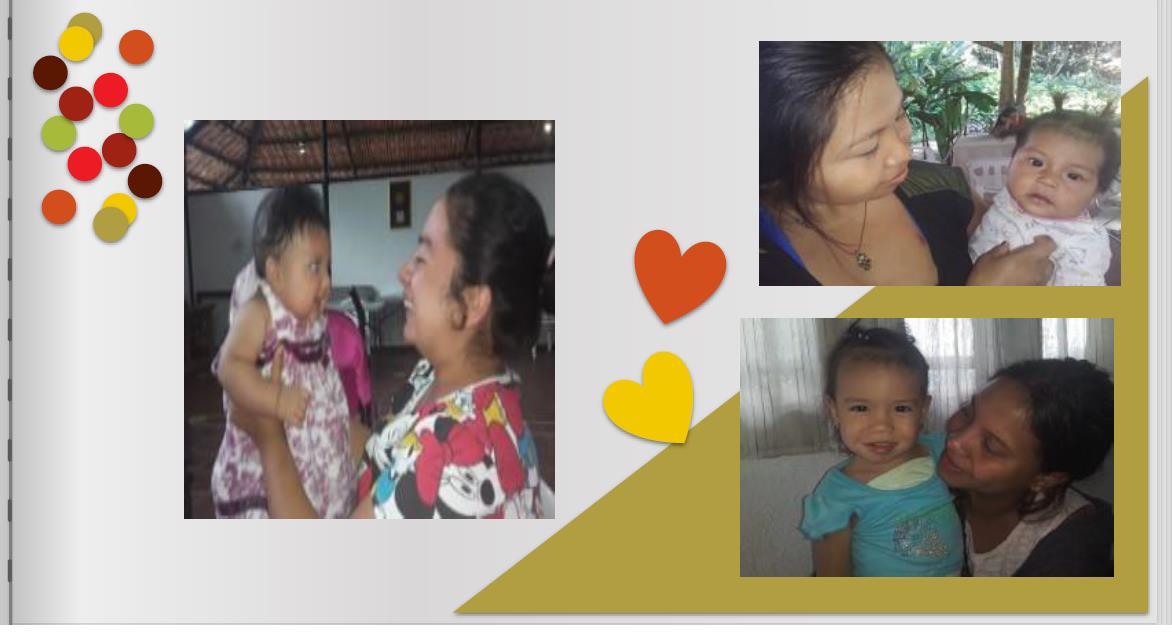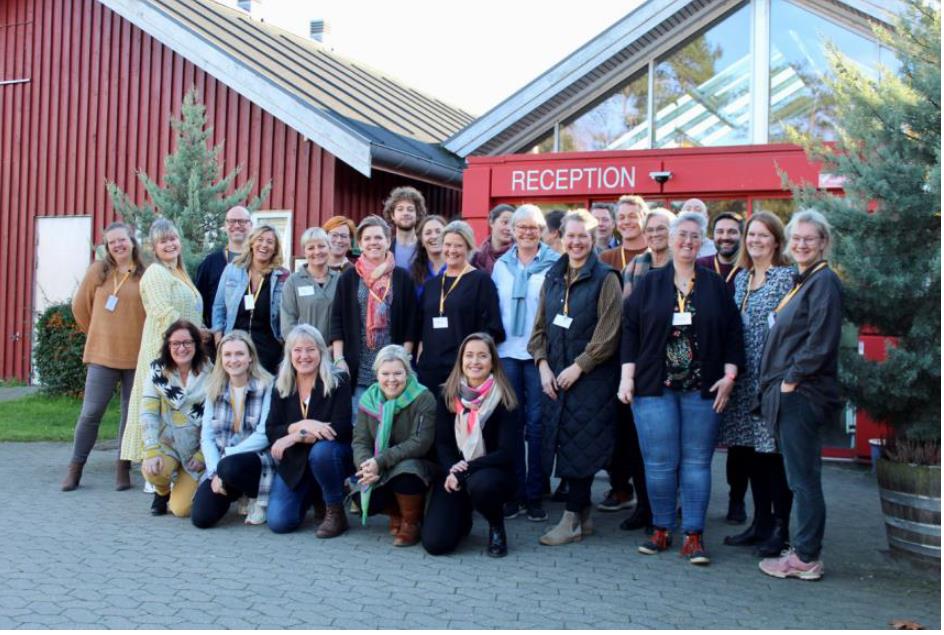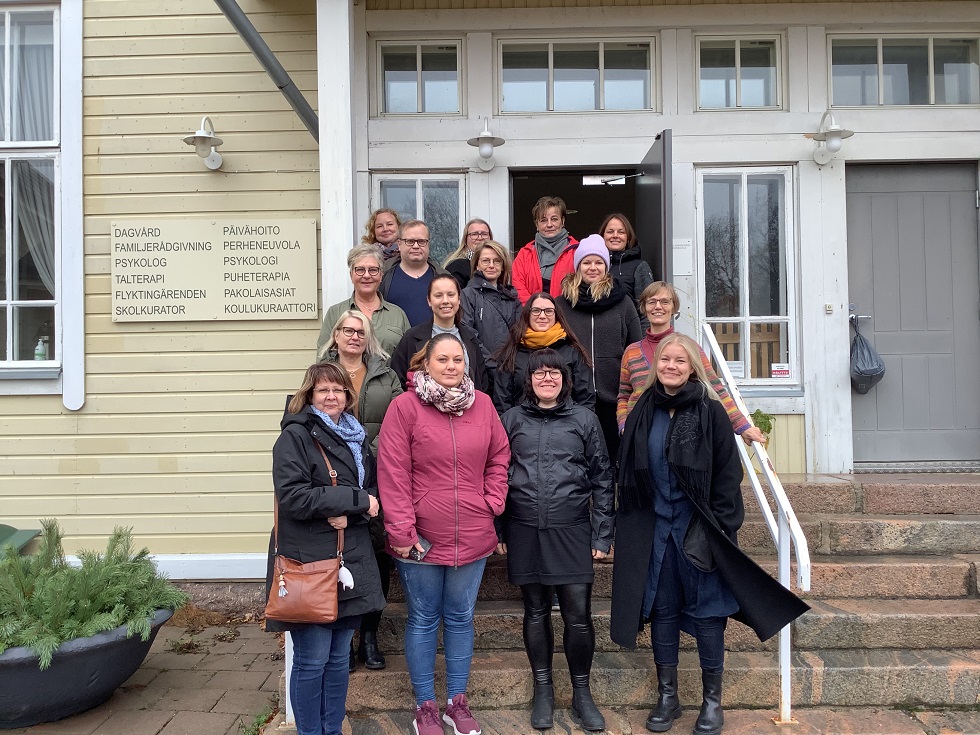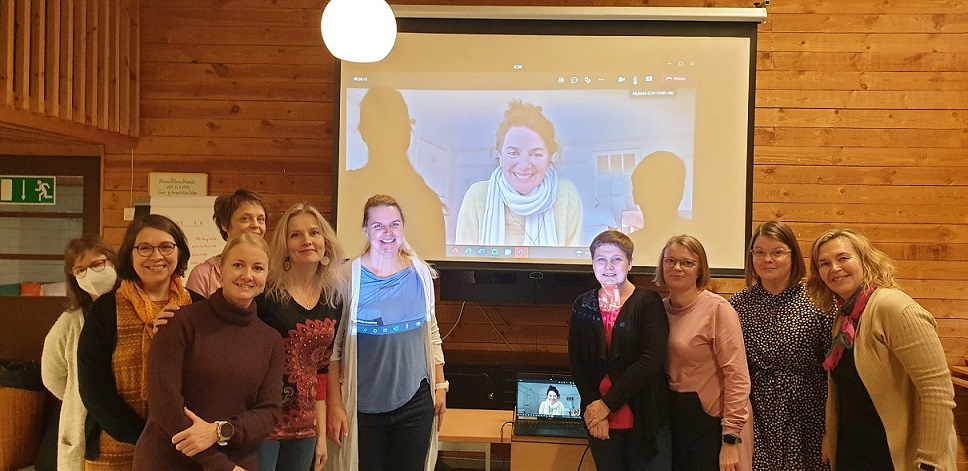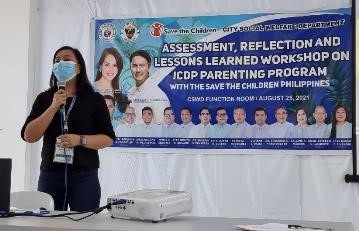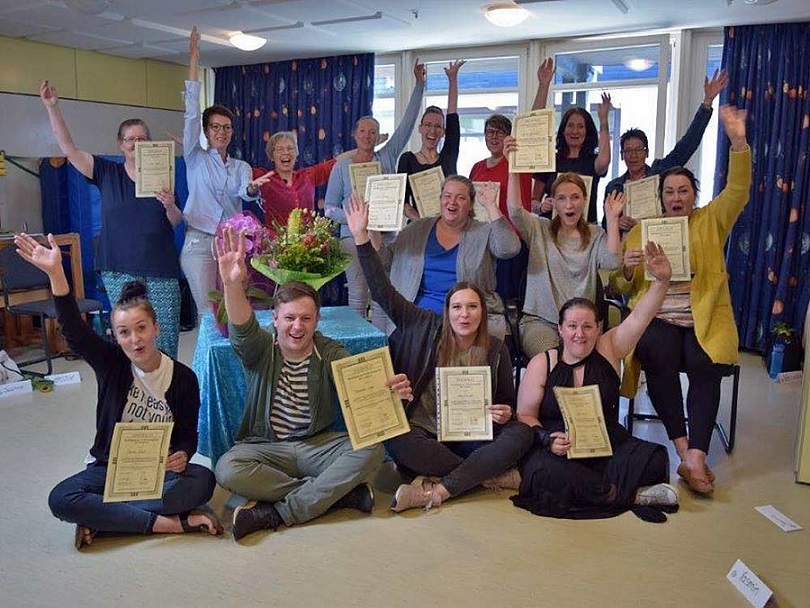During the autumn months in 2021, an ICDP sensitization project took place at the Amanecer International Centre, near the city of Armenia in Colombia.
The project was attended by vulnerable young people, mostly adolescent mothers who were also part of a programme called “Daughers of Peace” of the GHFP Foundation. The participants included 19 young people with ages between 18 and 25 years old. Some of them already had children. Seven participants came with children who attended the nursery at the Amanecer Centre during the period the project lasted, whereas the children of three other participants were not present; two of the participants were in the state of pregnancy. The ICDP trainers, Carmen Lucia Andrade and Blanca Cecilia Garcia, explained about the ICDP process:
We noted that working on the concepts of parenting and exploring local cultural practices in group, gradually strengthened the young participants’ self-esteem, by recognizing the importance of their role as mothers and identifying what good childcaring means. They saw the importance of leaving good memories for their children and not repeating difficult processes they had themselves experienced when they were growing up, that there is no room for abuse and violent behavior. They explored how we relate to children in our culture and explored and evaluated the typical concepts and prejudices. We enhanced positive aspects of local child rearing culture through dances, telling stories and playing games, which made the participants understand their value in parenting. Reliving good memories of their childhood made them understand their own children better. Daily interaction was valued for the creation of affective bonds through good treatment of children in everyday situations. Gradually the participants became aware and understood why it is necessary to make positive changes in relation to their children. They began to show their ability to express themselves affectively with their children and made efforts to increase their moments of closeness with them. They discovered that they must participate and join their children’s experiences, follow them and guide them in the discovery of the world, with patience, attention, dedication and enthusiasm; that they can help the development of intelligence in their children. They became determined to completely avoid hitting children and to stop screaming at them, realizing the damage such actions cause to the physical, emotional and mental development of children. They explored, practiced and demonstrated their ability to regulate their children’s actions in a positive way. The ICDP process guided them to conclude that it is not difficult to have good dialogues and communication in their daily interactive moments with their children and that with a little bit of awareness and patience a great deal can be achieved towards a happy and harmonious relationship. Participants were motivated to sustain and enrich learning. The self-assessment scale using the 8 ICDP guidelines as criteria for self-evaluation was explained and the interaction profile of some participants was made. With one of the mothers, we illustrated in depth how one can make one’s own interaction profile and then based on it we discussed how to make a strategy for future improvement of those aspects that had a low rating in the interaction profile. We asked participants to answer a few questions as a general evaluation at the end of the course, which confirmed that our work had a positive impact on this group.

